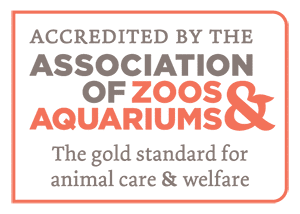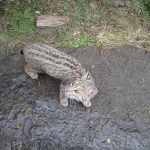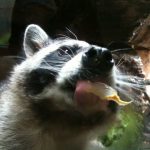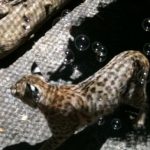Blog
A Closer Look at Enrichment: Smell
Welcome to the final installment of CuriOdyssey’s “A Closer Look at Enrichment” blog series! This last post is about how animal keepers create very smelly enrichment opportunities for our animals to keep them stimulated. How do you feel when you smell your favorite food? Does smelling lavender relax you? Think about how many different smells you experience in a day. For wildlife, smells can help them determine if other animals are nearby, if food is ripe or too rotten to eat, and more. Having a sense of smell is called “olfaction.”
Animal keepers will often exchange furniture and blankets between our animals so they can smell each other. Items from animals that would normally have a predator-prey relationship in the wild are not exchanged though, to reduce unnecessary stress or aggression. Fox and coyote urine-scented blankets seem to be the most stimulating for our bobcats though. Our foxes and coyote will urinate on objects to “mark” them, just as domestic dogs often do on fire hydrants and trees. Animal keepers then give those objects to animals like our bobcats. Here is a picture of Caro smelling a blanket that our fox urinated on.
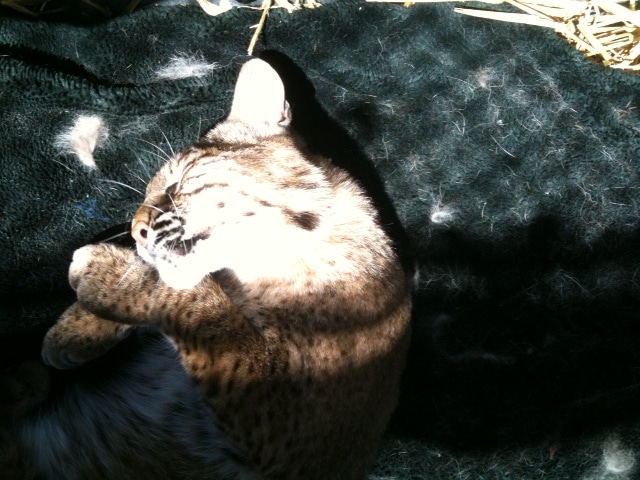
At first glance, it may seem odd that an animal would be rolling around in a blanket covered with urine, but this is a common animal response to a smelly object. When something in an animal’s territory smells like different animal, they will often try to mask the foreign smell with their own scent. When a fox-scented blanket is in our bobcat’s exhibit, our bobcats will rub their bodies on the blanket so it will smell like them instead. Have you noticed that domestic cats often nudge people, doorways and table corners? They are marking those objects too! Animals tend to feel more comfortable in a space if they are surrounded by their own smell. Wild animals often encounter foreign smells, so animal keepers try to recreate those experiences for our live animal collection.
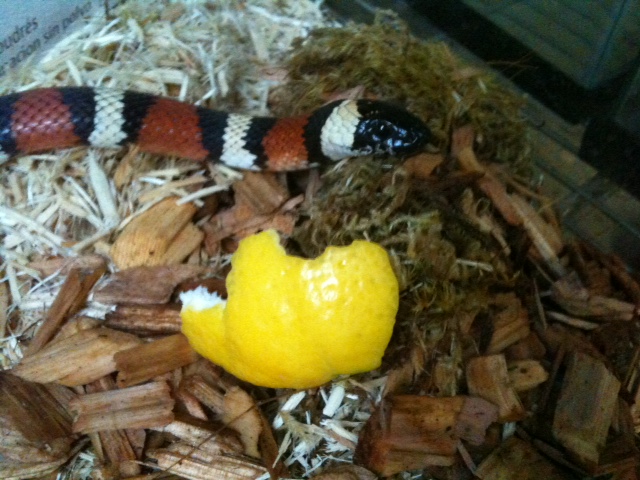
Other scents used to stimulate our animals include coffee, herbs, citrus, fur, feathers, snake skin, perfume and even smelly shoes. Lemon and orange peels are occasionally given to our snakes, hair from hoof stock are given to almost all of our animals, and fishy-scented boxes are often given to our vultures. Most of our birds are not given scent enrichment because they do not have the ability to smell, but turkey vultures are an exception. Notice that large nasal cavity? This is because turkey vultures rely on their sense of smell to locate their food – rotting meat.
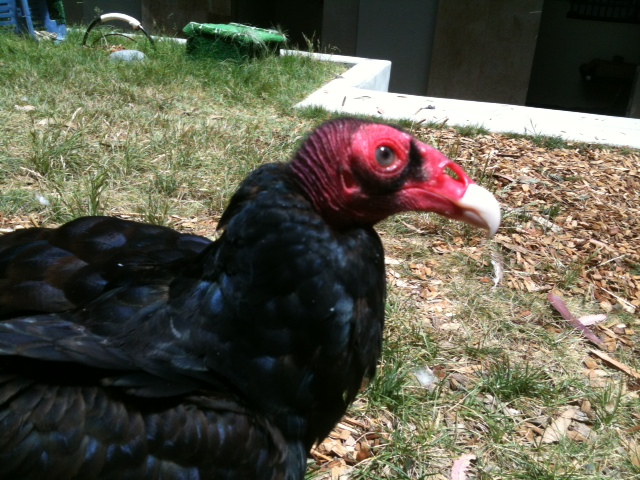
Having a sense of smell can be very important to an animal’s survival, but it can also give animal keepers another sense to work with when creating interesting experiences for our animals.
– post and photos by Rachael Tom, Animal Keeper
Join the CuriOdyssey Community
LOCATION
1651 Coyote Point Drive
San Mateo, CA 94401
Ohlone Land Acknowledgement
650-342-7755
info@curiodyssey.org
CuriOdyssey is a 501(c)(3) non-profit, Tax ID 94-1262434
